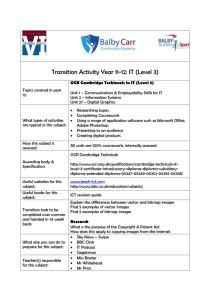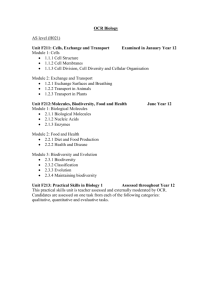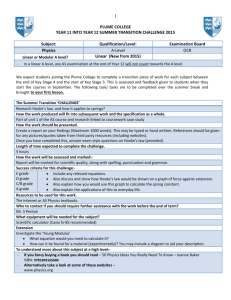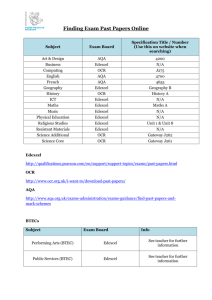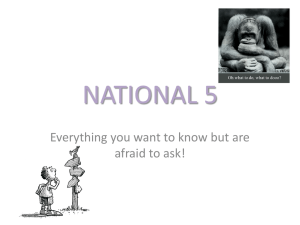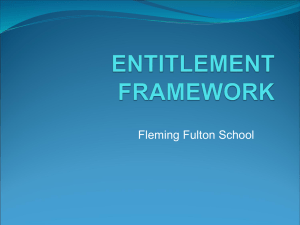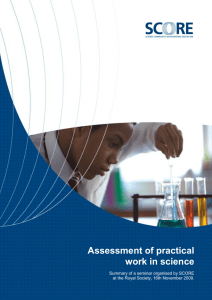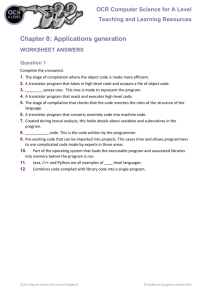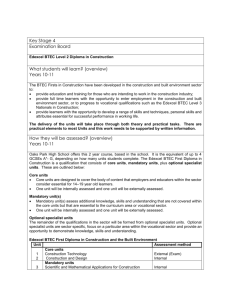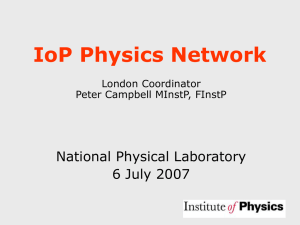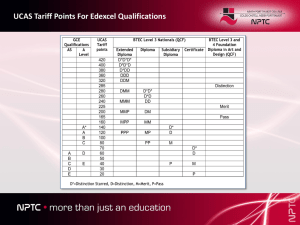John Charlesworth Overview of OCR and Edexcel GCSE
advertisement
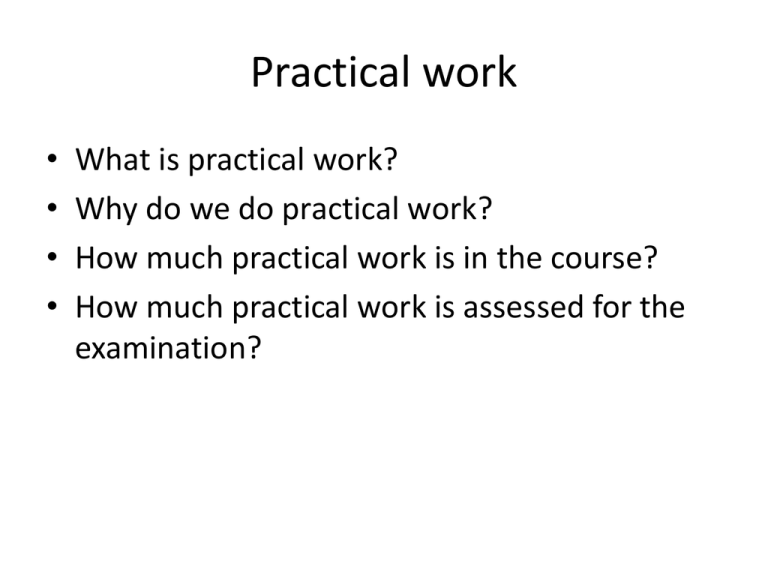
Practical work • • • • What is practical work? Why do we do practical work? How much practical work is in the course? How much practical work is assessed for the examination? 21 Century Science • • • • Core Science Additional Science Additional Applied Science Separate Sciences Core Science • Practical work total • Case Study • Data analysis 33.3% 20% 13.3% Case Study • The subject matter is chosen by the pupil usually linked to an aspect of the course. • The report can take a variety of formats. • Skills required are those taught in the course • E.g. Judging the reliability of data Assessing the quality of the science Ability to extract information Ability to find arguments for and against Ability to critically evaluate data Ability to reach a conclusion Ability to communicate information effectively Data Analysis • Pupils carry out practical work and collect results. • Results from more than one group can be included in the analysis • The assessment starts at the results table and includes the analysis and evaluation of the data Additional Science • Practical work total 33.3% • One complete investigation 33.3% • Pupils have to plan, carry out, analyse and evaluate an experiment. Separate Sciences Choice • Single Investigation Or • Case Study plus Data Analysis Additional Applied Science • Practical work Total 50 % • Work related report • Standard procedures (6) • Suitability Test 16.7% 12% 21% Work related report • Pupils research and write a report on the role of a person whose job is covered during the course such as a doctor, nurse, trading standards official, environmental officer, etc. • The research includes an interview of someone employed in that role. • A written report is submitted for assessment. Suitability Test • Based on practical work in a “real life” context to assess the suitability of a technique or piece of equipment for a specified task. Standard procedure • Pupils carry out a series of six standard procedures which are integral to the course. Gateway Science • Total practical work • • • • • • • Either: “Can do” tasks Science in the News Or: Research task Data analysis task Practical skills 33% 13.2% 19.8% 13.3% 16.7% 3.3% Can do tasks • Eight tasks out of 43 submitted. • These are graded tasks worth from one to three marks. • Assess practical skills through experiments that are integral to the course. • Can do any number of tasks and submit the best marks. Science in the News • Stimulus material provided by OCR. Article to research and evaluate (will include data). • Students then complete a written report of not more than 800 words, based on Qs given. • Any number may be attempted but only 1 submitted. • Teacher marked using detailed mark scheme provided by OCR. Research task • OCR provide the task, research prompts and assessment criteria. • Students have 1 week to carry out their research and submit a report on this. • They then complete the Case Study report (not more than800 words). • Teacher marked using the assessment criteria provided. Data Analysis task • Analysis and evaluation of data and experimental task. • Primary and secondary data. • OCR-set task. • Teacher marked using detailed mark scheme provided by OCR. Edexcel • Total practical work • Three practical tasks • Teacher assessed practical skills 40% 30% 10% Edexcel • IAA tasks, practical tasks defined by Edexcel to be carried out in class. • Task assessed by a written paper undertaken under controlled conditions • 3 tasks one each for biology, Physics and Chemistry • Teacher assessment of general practical skills Comments from teachers • Assessed practical work must be integral to the course and use / reinforce the learning objectives and skills which are developed during the course. • Teachers need the freedom to use the assessed practical at the appropriate point in the course. • Assessing practical skills by a written paper taken under exam conditions seems incongruous • Practical work should be tailored to the course, the requirements of Applied Science are very different to Additional Science. • However communality between Additional Science and the separate Sciences is useful as it allows flexibility in teaching , is easier to manage and reduces the training requirement for staff. Moderation of practical work • Marking is always subjective • Training is essential, should it be mandatory? • Depends upon the experience and consistency of exam board moderators Issues • Concerns about plagiarism could ruin good assessment of practical work. • Pressure from school SMT due to the number of modular GCSE courses all requiring controlled assessment. • Reduction in the % of marks allocated for practical assessment
